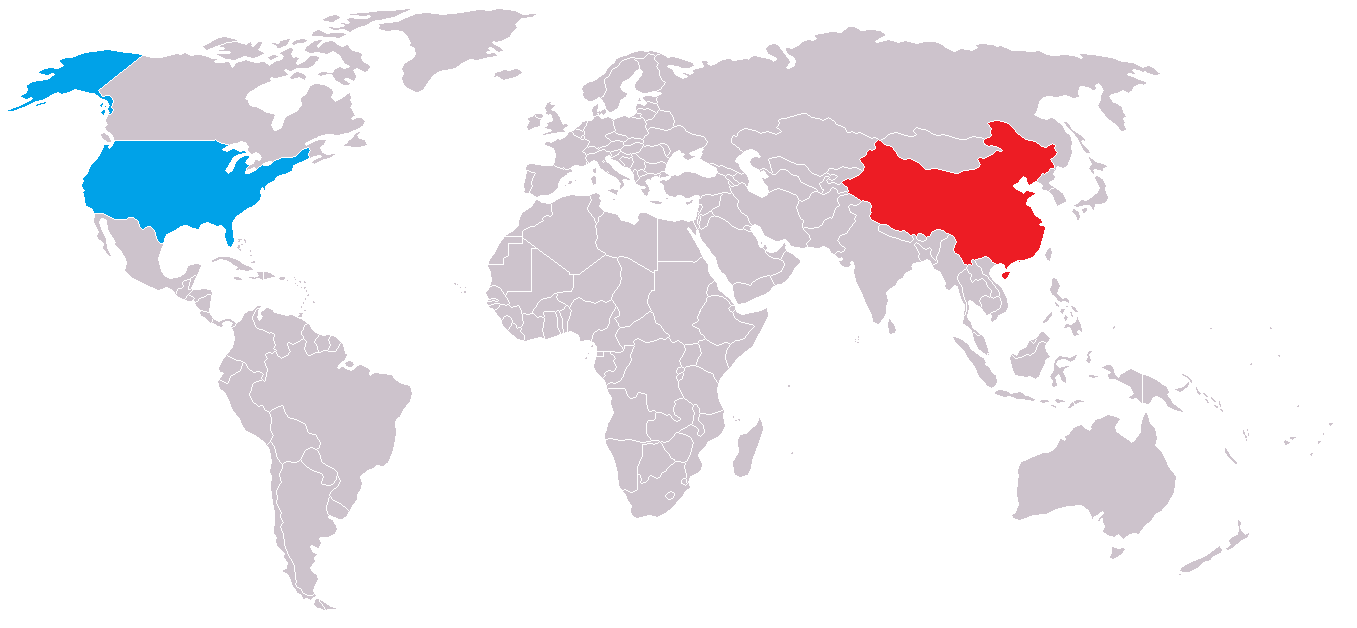
As I make the final preparations for an immanent trip to the People's Republic of China, I found by appropriate coincidence that a case has been filed which fits the theme of both my blog and my trip. One of the reasons for my travels is to get a sense of the state of intellectual property law being practiced in China (which, for my view, includes the state of defamation law). And here we have a suit being filed on behalf of China, CNN now sued for $1.3 billion - $1 per person in China.
The suit, in which the plaintiffs are a Chinese primary school teacher and a beautician, has been filed in New York (the story says the plaintiffs “filed a suit against CNN in New York” which I take to mean that the suit was filed in New York, and not simply against CNN’s New York bureau). The defamation alleged is that CNN commentator Jack Cafferty said that goods imported into the U.S. from China has included "junk with the lead paint on them and the poisoned pet food" and that the Chinese are "basically the same bunch of goons and thugs they've been for the last 50 years."
The New York plaintiffs are not alone in their outrage. The article relates that another suit has been filed in Beijing by lawyers incensed about the same remarks. The New York suit, I predict, will face a swift dismissal, because United States law rejects the concept of “group defamation.” An essential element of a defamation claim is that the defamatory comments must be "of or concerning" the plaintiff. The larger the group alleged to be defamed, the thinking goes, the less likely any particular individual will ascribe the defamatory commentary to the specific individual bringing the suit. Since the plaintiffs in this case sue on behalf of 1.3 billion people, this may well be the largest group on whose behalf such a suit has ever been brought (unless someone has, in recent history, brought a suit alleging defamation of all men or all women).
The defamatory comments alleged here, however, would seem to go more specifically against exporters of goods made in China, and the Chinese government, respectively. Thus, it would be very difficult to impute the defamation to be referring to a school teacher and a beautician who bear no responsibility in the governance of China and play no apparent role in the importation of goods therefrom.
The suit brought in China may have a different outcome, not merely because of possible home-court bias, but because the law differs from country to country. Throughout most of the world, defamation of a group is prohibited and may be remedied. It is therefore more likely than not that a remedy is available under Chinese law if Cafferty’s comments are found to be defamatory.
There has been scholarly discussion of whether group defamation should be a permissible cause of action in the United States, and commentators have suggested that the continued repetition of false accusations against a particular group, taken as a whole, can have the effect of causing non-members of the group to change their behavior towards even the most innocent member of the group (see, e.g. Racial and Ethnic Group Defamation: A Speech-Friendly Proposal by Professor Michael J. Polelle of the John Marshall Law School. This is certainly food for thought in light of historical situations in which groups such as Jews, and Muslims, Hispanics and Native Americans, and numerous other ethnic and religious denominations have been the subject of campaigns sponsored by governments and other powerful interests aimed at denigrating all members of the group.
All images used in this blog are from the
Wikimedia Commons.

